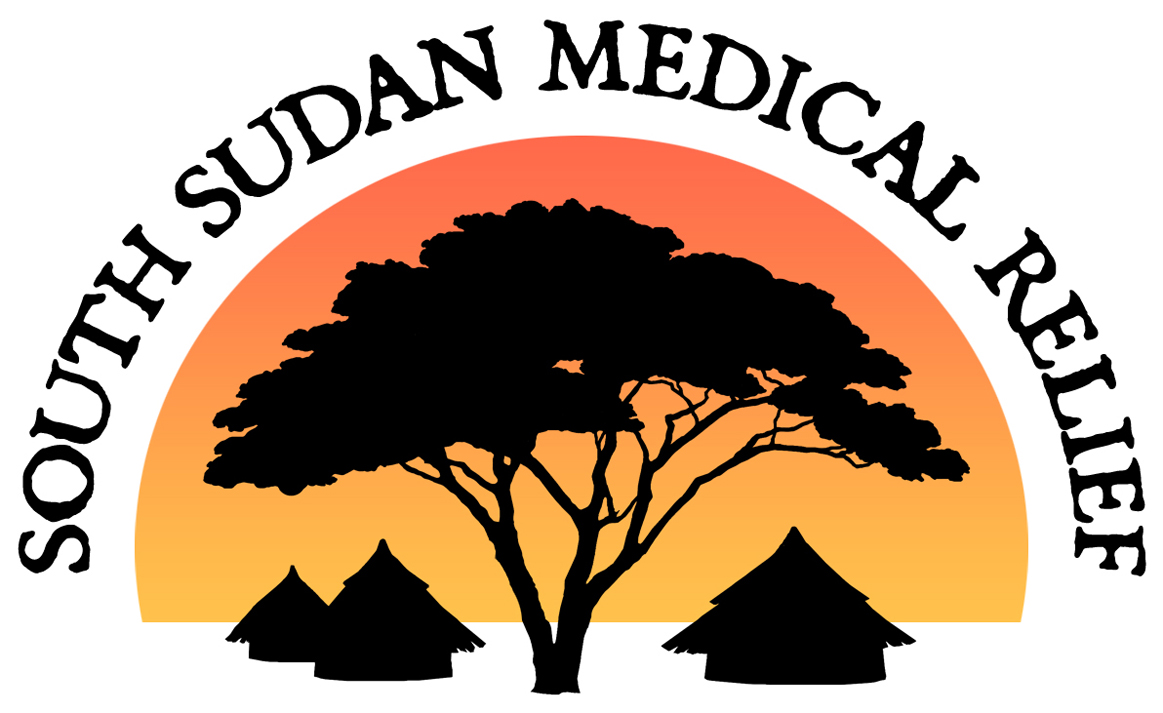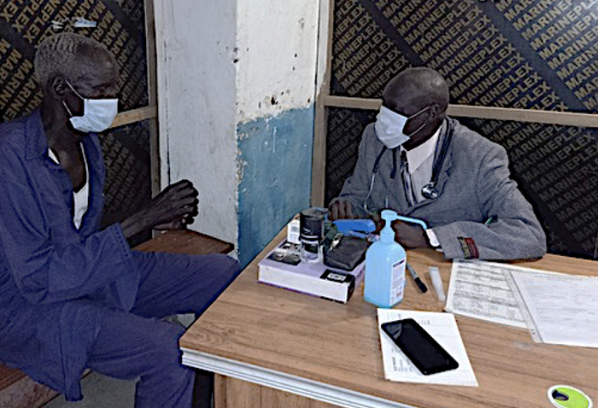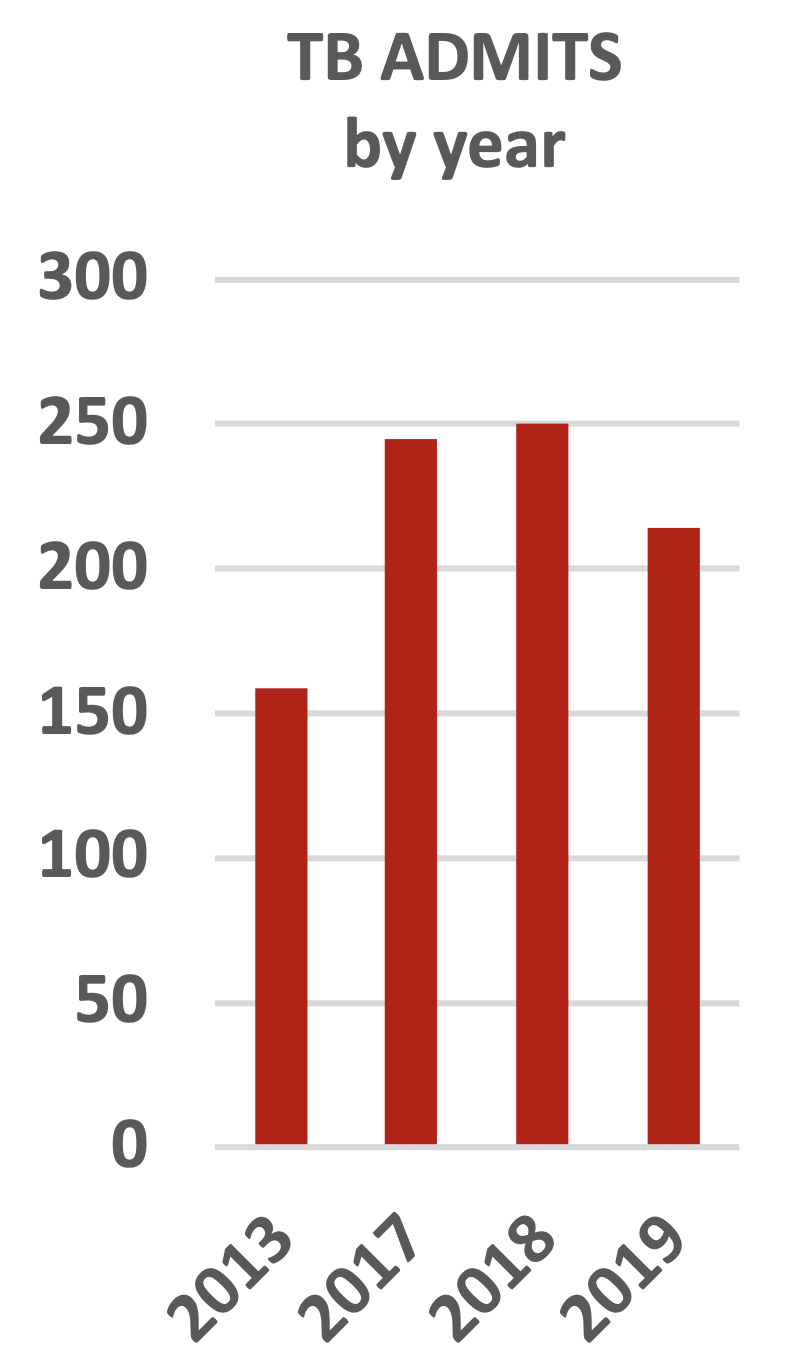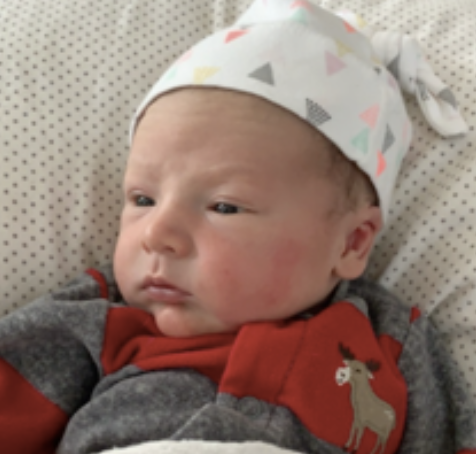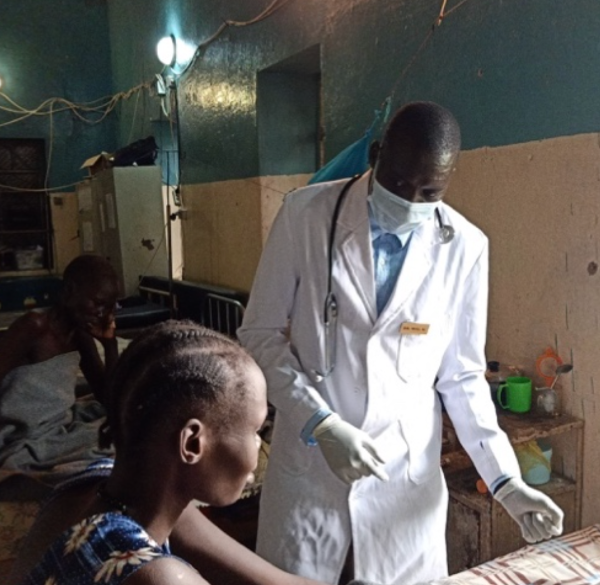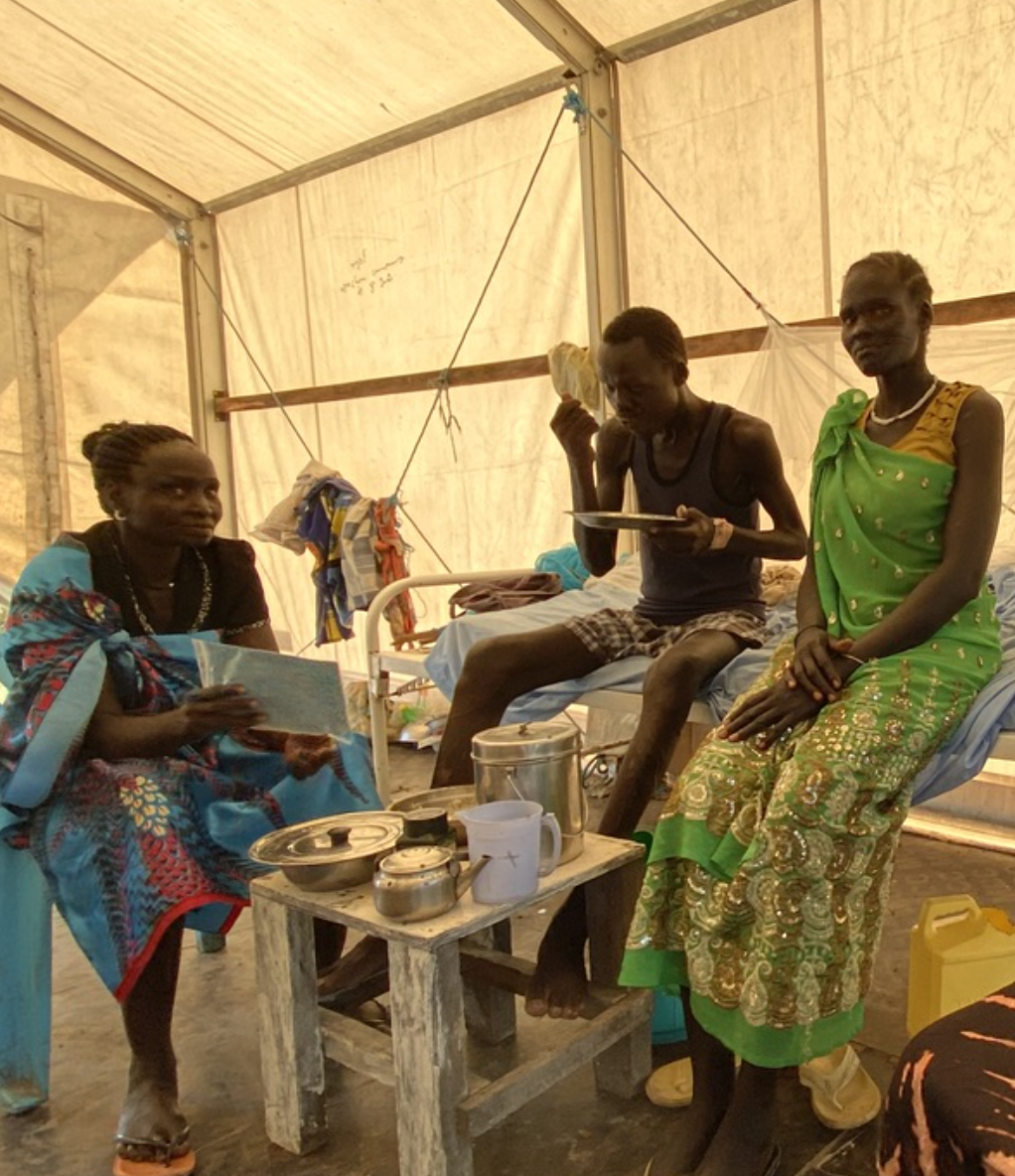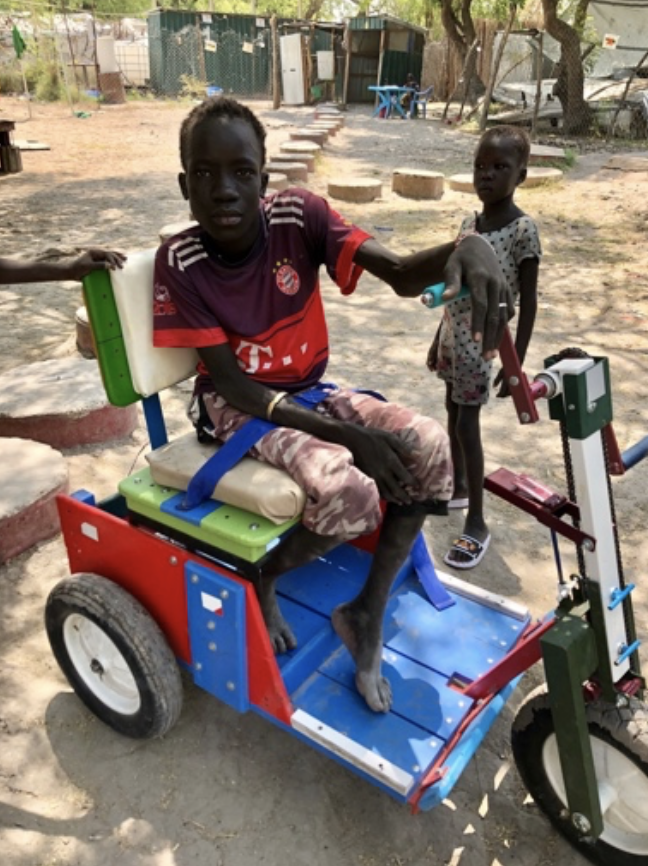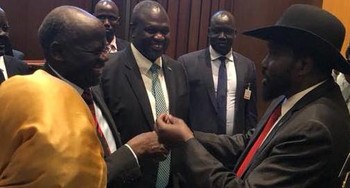https://www.washingtonpost.com/world/south-sudan-suspends-dredging-of-naam-river-sudd-wetlands/2022/07/11/f876ed88-0125-11ed-8beb-2b4e481b1500_story.html
Russia's war is starving kids 3,000 miles away
https://www.cbsnews.com/news/russia-ukraine-war-food-emergency-2022-cbs-news-south-sudan-famine/
Award-winning photos of flood survivors in S. Sudan
https://www.npr.org/sections/goatsandsoda/2021/11/20/1054865992/prize-winning-photos-capture-the-grit-and-suffering-of-flood-survivors-in-south-
Story on South Sudan Flooding in The Guardian
Follow the link to read the latest on flooding in South Sudan
https://www.theguardian.com/global-development/2021/mar/19/drowned-land-hunger-stalks-south-sudans-flooded-villages
'Our children die in our hands' Floods ravage S. Sudan
OLD FANGAK, South Sudan (AP) — On a scrap of land surrounded by flooding in South Sudan, families drink and bathe from the waters that swept away latrines and continue to rise.
Some 1 million people in the country have been displaced or isolated for months by the worst flooding in memory, with the intense rainy season a sign of climate change. The waters began rising in June, washing away crops, swamping roads and worsening hunger and disease in the young nation struggling to recover from civil war. Now famine is a threat.
Read the rest of the story here.
Flooding in Old Fangak
Guess what! We are really really really flooded.
All the people from Diang Dieng, Nonimac, and lots more are stuck in Old Fangak. You can’t walk from here to Phom—normally a long day’s walk-- because you would have to sleep before you had any place to lie down (so they say!)
In 40 years, I do not remember hearing of a flood that lasted to January. This ought to be dry season, but the rain just keeps falling. They say the water in Lake Victoria is approaching the tarmac! And all the islands of swamp grass are clogging the river - hearsay but sounds plausible.
Oh my gosh. Apparently an elder that I knew from a distant village came asking for me. For some reason he thought I might have insight. He wanted to know if he should move his people to the Nuba Mountains!!!!!
Here you see the periphery of Old Fangak, with the school in the foreground, and the swamp extending through all of Nonimac. The dike is that little ribbon-like band surrounding Old Fangak.
When I flew in Dec 18, people were building multiple dikes, and some constructed islands to elevate their homes. It’s a huge swamp. We live in the world’s biggest swamp during the rainy season. This year, even though the rains have slowed down in South Sudan, we must be getting overflow from somewhere upstream.
Below, you see some thatch-roofed tukuls on dry land in the foreground. Beyond the dike, only their roofs stick up out of flood waters.
Rivulets extend from the river, and have breached the first dike already. The second dike still holds. The dikes look like a thin ribbon in these photos, but are at least a meter wide, all around Old Fangak.
WHAT A MESS! The International Red Cross and other NGOs have helped with food and non-food items. Hopefully World Food Program will come in January as well.
How to make a dike
Left: Crews of village men are “drafted” to work on portions of the dike. The official who does the “drafting” works right alongside them.
The dike nears completion.
Then the women’s job is to bail all the water from the village side of the dike. That’s a lot of water! Fortunately, another NGO sent in some pumps to help.
We think that the last severe floods may have decreased kala azar numbers by killing the larval stage of the sand fly. Some clouds bring silver linings along with plenty of raindrops! But malarial mosquitos will take advantage of more pools of water to use as breeding grounds.
Floods make food insecurity even worse. The UN predicted last week that 60% of the people of South Sudan will experience either worsening hunger, or an official food crisis. They are hungry already.
Many of you have been pitched in very generously after our last mailing. We thank you, and welcome any further contributions!
Thank you!
Dr. Jill Seaman
Dec. 17 Update from South Sudan Medical Relief
You never know when saving the life of a four-year-old might come back to bless you.
In 2019, we received a most enticing offer. African Mission Healthcare Foundation, which helps fund our national staff training and salaries, told us they knew a South Sudanese doctor who might like to work with us.
You have no idea how rare South Sudanese doctors are! Since there is no university in South Sudan, medical students move to another country for six or seven years of training. Then they have to walk away from educational, financial and cultural opportunities if they want to return home.
Dr James Wal was the doctor who returned to us.
Of course, in this year of COVID, his arrival did not go as planned. Jill expected to be there to welcome him, and orient him to our work in Old Fangak. Instead, she was stuck in Alaska. Our national staff introduced Dr James to programs for TB, kala azar, malnutrition, and outpatient consults. Dr James did his best to apply skills learned in an urban setting to working in a very remote one. Our national staff was impressed.
When Jill got back, four months behind schedule, Dr. James was anxious to tell his story:
Long ago, a young boy was gravely ill with kala azar. The boy's father could tell he was going to die, and thought it was time for the family to let him go. His mom could not agree. Instead, she walked for four days, carrying the young boy, to reach a medical program that might be able to save his life.
After thirty days of scary, painful injections, he recovered. He and his mom came to say good-bye to Dr. Jill. When he told her that he wanted to perform magic like she does, she replied that her "magic” was education. She told him he should try to go to school. He vowed right then he would study to be a doctor.
And he did. Due to the civil war, his schooling was sporatic, often in refugee camps. His tenacity won him a scholarship to the highly regarded Methodist University in Kenya, to study medicine.
And now he is our first almost-local Nuer doctor, treating his people, speaking fluently in their language.
Your support over the past 20 years--or more--enables us to witness the fruits of our collective labors. Little boys who might have died grow up to be doctors instead. Doesn't that feel a lot like magic?
Wishing you many blessings, and hope for 2021,
Sept. 2020: Updates from South Sudan Medical Relief
PEACE IN THE MAKING
By September, 2018, leaders of the warring factions in South Sudan signed a peace agreement. It was due for implementation in May, 2019. That was deferred to November, and then to February 2020. Finally, state sponsored hostilities had ceased. Old Fangak wasted no time taking advantage of the peace. You see, the river between Juba (the capital city) and Old Fangak became safe for travel. Trader boats could transport goods and passengers.
The Alaska team planned a TB building about 8 years ago, but logistics were impossible. With peace imminent, the impossible began to look like a possibility. They sprang into action last summer, designing and organizing our amazing new facility. One ward isolates those with sputum positive TB, so they don’t infect others; another shelters those with spinal TB, whose “broken backs” make walking difficult. They ordered the custom-made prefab building, and had it delivered by boat.
Housing for new sputum-positive patients has become essential. Old Fangak is now a town. We used to hold clinic under a tree, where breezes blew away most of the germs, and let patients find an isolated hut or tent for shelter. Now there are no uncrowded places left. Patients must be isolated for the first few weeks of treatment to avoid spreading TB around the community.
AND THEN CAME COVID
Jill left Old Fangak on March 3. She returned to Bethel, Alaska, to work some shifts – but her true motivation was to welcome little Leo when he came into the world. Leo’s mom, Ashley Fairbanks Glasheen, is a nurse practitioner who began her medical career by volunteering in Old Fangak during the 2011 kala azar outbreak.
Leo arrived March 7. Jill had two more weeks of work in Bethel. Then came COVID. The pandemic was declared, Jill’s flight was re-booked, and cancelled, and re-booked . . . Then the Juba authorities visited our logistics man one night to advise him, “Don’t let Jill fly. We really won’t be able to get her in.” The next day they shut the border. The eye clinic we’d organized for February was canceled because some eye team expats worried that fighting might break out again when the unity government was installed.
Patients arrived, but the eye team didn’t. We booked a smaller eye clinic in April, staffed mainly by South Sudanese. This too was finally cancelled, because how could you keep all the elders waiting in Old Fangak, when no one knew what the pandemic might permit? Some people had huddled there for a month already. They returned home, still blind, awaiting their next opportunity.
Other logistical matters have also turned into nightmares. With peace, supplies could come in by truck from Uganda. That was easier, and much cheaper than flying stuff in—until one day they asked all drivers to wait for COVID tests—and that was four weeks ago! The line of lorries now stretches back for 24 miles! Our plumpy nut sits somewhere in that line.
BACK TO TB
We are still welcoming lots of new TB patients. TB treatment reopened just north of us in Malakal, which used to be the second biggest city in South Sudan. It was almost flattened by the fighting. We are so fortunate in Old Fangak to have never had to close the clinic in the 20 years since we opened.
We still have trouble getting people tested for HIV, but we are happy that we can offer co-infected patients treatment for both diseases. Many are so sick, and their TB is disseminated (spread throughout their bodies), not confined to lungs or spine or lymph nodes.
The slight decline in total TB patients is really nice to see. It may due to the fact that some patients can now be treated in Malakal.
Dr. James Wal graduated from the highly-regarded Methodist University in Kenya and recently joined our staff in Old Fangak.
WE HAVE A SOUTH SUDANESE DOCTOR ON STAFF!
Dr. James Wal graduated from the highly-regarded Methodist University in Kenya. American Mission Healthcare, which has supported our project for years, paid his school fees. After James completed five years of schooling, plus his internship, the organization he planned to work with had departed South Sudan. AMH contacted us to see if we had room for a doctor from the state just across the Nile, with the same “mother tongue”.
Oh my gosh, what an opportunity! Everyone is happy. SSMR staff love having a local guy who can doctor, with or without Jill on site. MSF deemed him competent already, and have him share their night call. Patients see him as one of their own. With school now open in town, he may inspire our kids to dream of new careers.
HOW TO SAVE LIVES IN SOUTH SUDAN
Worldwide causes of death are grouped into 3 broad categories: injuries, non-communicable diseases, and the one we focus on— infectious, maternal, neonatal and nutritional disease.
These graphs, from Our World Data, show trends over the past 27 years.
RED for communicable, maternal, neonatal, and nutritional diseases.
BLUE for non- communicable diseases.
YELLOW for injuries.
Worldwide, 50% of deaths come to people over the age of 70. In South Sudan, 52% die age 14 and under.
We started Sudan Tuberculosis Project to treat the world’s most lethal infectious disease, in a remote roadless setting complicated by civil war. We soon added treatment for kala azar, which later eclipsed TB as the biggest infectious killer in our area. But you can't ignore malaria--brucella--everyday pneumonias--leprosy. Family doctors see it all.
When we were overwhelmed with war wounded in 2014, Medecins Sans Frontiers (Doctors Without Borders) sent a team to help with casualties. Then thousands of displaced people required more services than we could provide. MSF expanded their role to share the burden of infectious, maternal/perinatal, and nutrition issues.
Our evening fever clinic is a constant. Scattered headlamps illuminate little islands of doctor/patient interaction in the courtyard. Our patients may have walked all day and arrived after dark, or may have illness that declares itself when the sun goes down and fevers go up.
Kala azar, our particular area of expertise, is incredibly well controlled at the moment. In crazy 2011, we treated 5000 patients—half the cases in South Sudan. This year, we only admitted 100. With field research into treatment protocols, we have shortened the regimen of daily injections from 30 to 17 days. New protocols for intercurrent illnesses, and transfusing anemic patients before their haemoglobin falls desperately low, has helped decrease kala azar mortality from 9% to 1%. We are grateful.
EXPANDING INTO CHRONIC DISEASE MANAGEMENT
Most of our local folk are skinny. Disease makes them even skinnier. Their goal is to eat enough to keep flesh on their bones, not to control their weight.
Then comes a local man who moves to the city, and finds a sedentary job, and plenty to eat. He gets chubby. He dies of a heart attack. All of a sudden, our community begins to think that the easy life is perhaps not so good.
Bit by bit, we talk to our staff about walking, even if you do live next to the market. (Whoever thought you would need to encourage nomads to walk?) People request nicotine aids to stop smoking.
As more of our community survives childhood, and childbirth, some live long enough to develop chronic disease. Diabetes, hypertension, asthma, renal failure—all those plagues of Western life. They are still novelties in South Sudan. But we are expanding our program to teach national staff about diseases that need to be prevented through public health education, rather than treated with antibiotics. Having Dr. James on board provides continuity in that effort.
OUR HAPPY STORY
SSMR covers maternity two days per week, and lends a hand when asked. One day this fall, we were called for a delivery which just kept on going. The midwife was working with Baby Number One, handing Baby Number Two off to Jill for resuscitation—but there was more! Dr. Jenn appeared just in time to help catch Baby Number Three. Three little girls, soon healthy and howling.
When Mom went into heart failure two days later, SSMR could provide ACE inhibitors and nitrate, since we carry meds for chronic disease. She pulled out of failure. Then the family figured we should supply supplemental milk for the next three months. (In case you were wondering, no baby in Old Fangak wears diapers. Moms are so attuned to their movements that they hold babies out and let them pee on the ground. But can you imagine doing that with triplets?!) We treated maternal, neonatal, and nutritional issues for that family—as well as what could easily become a chronic, life-threatening disease for the mom. Amazingly, not one got an infection!
Connecting Bethel, Alaska and South Sudan
From KYUK Radio in Bethel, Alaska —
While South Sudan is thousands of miles away from Alaska geographically, it is a part of the world that Bethel has kept a close connection to through Dr. Jill Seaman, a physician who splits her time between Bethel and Old Fangak, South Sudan. In Bethel, she works with the Yukon-Kuskokwim Health Corporation. In Old Fangak, she founded and runs South Sudan Medical Relief, a community project focused on providing local health care. Her work has earned her a MacArthur “Genius” Fellowship. She joins us just days before leaving Bethel to travel back to continue that work.
Listen to the interview here: https://www.kyuk.org/post/coffeekyuk-july-28-connecting-bethel-and-south-sudan
COVID-19 & conflict threaten health system, ceasefire
From Radio Tamazuj: https://radiotamazuj.org/en/news/article/covid-19-and-conflict-threaten-health-system-and-ceasefire-in-south-sudan-shearer
The impact of COVID-19 risks undermining the fragile health system in South Sudan, causing the death of many more people from preventable health problems than the virus itself, a senior UN official said.
In a briefing to the United Nations Security Council on Tuesday, David Shearer, head of the UN Mission in South Sudan (UNMISS) detailed the twin threat posed by COVID-19 and escalating conflict in the regions which could unravel the ceasefire.
So far, 1942 COVID-19 cases and 36 deaths have been recorded although limited testing and social stigma is obscuring the true magnitude of the virus.
There is deep concern that the additional pressure of responding to COVID-19 on the already weak health system will disrupt vaccinations, maternal health services and treatment for curable diseases like malaria, diarrhea and pneumonia, resulting in a devastating increase in preventable deaths.
“COVID is going to hit hard. But not in the way that we think. Yes, people will die from the virus, like everywhere else in the world,” said David Shearer. “But the real threat to the people of South Sudan lies in the collapse of the already fragile health system. This could result in many, many more lives being lost – a tragedy that can be prevented.”
The infectious diseases hospital in Juba has been expanded with support from the international community and Ministry of Health. UNMISS has also renovated and equipped hospitals in the 10 states so that COVID-19 patients can be treated.
“We are doing what we can to give limited care to critical patients who previously had nothing. More importantly, these measures are designed to reduce the risk of COVID transmission to other facilities which are treating common but lethal illnesses,” said Shearer.
“To keep clinics open, it is imperative that health workers have Personal Protective Equipment. Already 86 health workers have been infected. PPE is in short supply and health workers are fearful. Their salaries continue to go unpaid.”
Turning to the peace process, Shearer detailed positive steps that had been taken, including the formation of the unity government and joint cabinet, the appointment of vice-presidents, and end of a stand-off over the allocation of states.
He said governors should now be appointed to fill a power vacuum and help resolve escalating conflict in places like Jonglei where hundreds of civilians have been killed and 60,000 displaced.
“The political impasse, on top of the COVID lock down, has caused conflict to escalate with violent incidents multiplying four-fold in two years,” said David Shearer. “This violence can no longer be pigeonholed as “intercommunal”. Fighters in uniform have been spotted suggesting that organized forces may be joining the conflict which risks unravelling the ceasefire.”
Despite some positive progress, David Shearer said the peace process is “faltering” and requires “renewed energy and a reset”.
“A unity government, by definition, takes decisions collaboratively – whether as a presidency or cabinet. This way of working needs to become a habit, not an exception,” he said. “A unity government acts in the best interests of all its people regardless of ethnic identity and should act collectively and swiftly to curtail conflict in the states.”
Shearer acknowledged that regional partners and peace guarantors are beset by their own COVID-19 struggles but urged them to remain actively engaged in the peace process to maintain momentum.
Timeline: South Sudan since independence
Aljazeera published a timeline of South Sudan since independence. Read the timeline here:
https://www.aljazeera.com/news/2020/02/timeline-south-sudan-independence-200222173029619.html
S. Sudan cuts number of states from 32 to 10
South Sudan's President Salva Kiir Mayardit shakes hands with Riek Machar, ex-vice president and former rebel leader, during their meeting at the State House in Juba, South Sudan January 15, 2020. REUTERS/Jok Solomun
By Denis Dumo
JUBA, South Sudan (Reuters) - South Sudan’s President Salva Kiir said on Saturday he was cutting the number of states from 32 to 10, unlocking a stalled peace deal and paving the way for the formation of a long- awaited unity government.
“The compromise we have made today is a painful decision but a necessary one if that is what brings peace”, Kiir said in a statement. “I expect the opposition to be prepared to do the same.”
The regional group IGAD had given the government until Saturday to find a solution over the number of states the country should have.
Disagreement between Kiir and former rebel leader Riek Machar over the number of states as well as a failure to integrate different fighting forces have been major obstacles to completing the peace process.
“In general we welcome the decision taken by the president to take the country to 10 states,” said Manawa Peter, deputy spokesman of Riek Machar, adding, “this is a win win decision for the people and we commend the president for his wise choice.”
Alan Boswell, a senior analyst with the Brussels-based think-tank International Crisis Group, said: “This paves a path forward. The peace deal was stuck. Now the parties will need to complete the negotiations to form the long-awaited unity government.”
South Sudan’s five-year civil war erupted soon after the country’s formation in 2011 and created the worst refugee crisis in Africa since the Rwandan genocide.
Kiir and Riek Machar agreed a peace deal in 2018, pressured by the United Nations, the United States and countries in the region.
Under the deal, the two agreed to form a unity government by November 2019. They then pushed then the deadline back by 100 days, prompting Washington to recall its ambassador and impose sanctions on senior officials for their role in perpetuating the conflict.
NYTimes: South Sudan Silences a Witness…
Sam Mednick of The Associated Press was expelled for telling the truth.
The editorial board is a group of opinion journalists whose views are informed by expertise, research, debate and certain longstanding values. It is separate from the newsroom.
Nov. 5, 2019
Illustration by Nicholas Konrad; photograph by Getty Images
Not many international reporters brave the bloodshed and chaos of South Sudan to let the world know of the horrors taking place there. That suits the thugs who thrive on violence and chaos just fine: It is often reporting from the scene that helps generate the shock and shame for governments and international organizations to intervene in bloody power struggles that otherwise could drag on without end, destroying endless lives and uprooting countless families.
Sam Mednick is one of the few text journalists who have told the stories of South Sudan. A courageous Canadian freelancer who was The Associated Press’s correspondent in South Sudan for nearly three years, she knew the score — before South Sudan, she had reported from the Middle East, Asia, South America, Europe and elsewhere in Africa. Her story in recent weeks had been the unraveling of a peace agreement that was to meld the government and rebels into a power-sharing coalition government. For that, the government silenced her.
“After almost three years of reporting from South Sudan, my press pass was revoked (for 6 months) because I was told that I ‘concocted misinformation intended to create panic and fear of unknown,’” she tweeted on Oct. 31. “This is extremely disheartening and yet another troubling sign for #PressFreedom in South Sudan. The timing, two weeks before the warring sides are meant to unite, is uncanny. I’m honoured to have been able to report from parts of the country that don’t get a lot of international coverage. And I’m grateful to the South Sudanese people I’ve met, who have inspired me more than they realize.”
The timing would be uncanny if the nation’s leaders were presumed to be working for the welfare of their people. It is not surprising for men locked in a struggle for power and loot.
The world’s youngest nation, South Sudan broke away from Sudan in 2011 only to descend into its own brutal civil war two years later, fueled by oil riches and ethnic rivalries, between forces loyal to President Salva Kiir and to former Vice President Riek Machar. The toll has been terrible — hundreds of thousands have been killed, at least 1.75 million displaced, and atrocities ranging from rape to murder.
The watchdog group the Sentry, co-founded by the actor George Clooney, issued a report in September linking an oil consortium working South Sudan’s fields, controlled by Malaysia’s Petronas and the China National Petroleum Corporation, to militias on President Kiir’s side that are responsible for many of the atrocities.
Last year, the fighting factions agreed to a peace deal, which includes forming an interim coalition government by next Tuesday. But many aspects of the accord, including the integration of the opposing forces into a national army, have yet to be put in place. Mr. Machar has demanded a delay and has warned that he will not return from self-imposed exile unless there is one, raising the risk of a revival of violence.
Reporting the facts of such highly volatile and complex crises is essential if they are ever to be tackled, and if the death and suffering are ever to end. The oil companies and authorities who fan the flames for their own ends need to be exposed, and nongovernmental organizations such as Mr. Clooney’s and reporters such as Ms. Mednick should be commended for — and protected in — their efforts to bring the truth of what’s happening to the world.
South Sudan’s action in silencing Ms. Mednick was indeed uncanny, and unconscionable, and warrants the loudest protest from organizations and governments that deem peace and elemental human rights worth defending.
NYTimes: Oil Consortium Funded Militias…
Soldiers from the Sudan People’s Liberation Army at an oil facility in South Sudan in 2014. Much of the government’s wealth comes from oil revenue. Andreea Campeanu/Reuters
By Megan Specia
Sept. 19, 2019
Read the story on the NYTimes website here.
LONDON — A South Sudanese oil consortium directly financed militias accused of committing atrocities in the country’s civil war, according to an investigative report released on Thursday amid growing calls for accountability for the conflict’s human rights abuses.
The report by a watchdog group linked the consortium, Dar Petroleum Operating Company, in which Chinese- and Malaysian state-owned oil companies have large stakes, to episodes of violence, corruption and environmental degradation. It also outlined ties between forces loyal to the government of President Salva Kiir and the company, a relationship apparently forged in an effort to protect the oil fields and keep revenues flowing.
South Sudan’s oil fields, the primary source of the government’s wealth, have long been one of the pathways to finance the civil war. But the detailed report by the watchdog group the Sentry, released at a news conference in London on Thursday, attempts to further shore up the evidence of the international players believed to be complicit in the civil war, which has lasted six years, almost as long as the country has existed. The Sentry was founded by the actor George Clooney and John Prendergast, a rights activist.
While experts say there are few accountability mechanisms in place in South Sudan, the naming and shaming of major international organizations and individuals could prove financially damaging. The authors also hope the report would spur action from banks and governments, such as seizing assets and imposing sanctions on those named.
“Without their support, these atrocities could never have happened at this scale,” Mr. Clooney said. “Facts are stubborn things.”The report comes amid a cease-fire and a stalled peace process to end the war, which has left South Sudan, the world’s youngest country, in a fragile state. Hunger is widespread. More than 1.75 million people have been displaced, hundreds of thousands have become refugees, and nearly 400,000 were believed killed in the civil war. In 2018, United Nations officials outlined a campaign of killings and rapes by government forces and their allies in the spring.
South Sudan became an independent nation in 2011 from an international push to end decades of conflict between the north and south of what was then Sudan. But by December 2013, a feud between forces loyal to Mr. Kiir and those beholden to his former vice president, Riek Machar, drew the new country into its own civil war.The peace process formally began last year, when Mr. Kiir and Mr. Machar signed an accord. The men, who met in the capital, Juba, last week, have agreed to form an interim government by Nov. 12.
Many aspects of the peace deal have yet to be put in place, including the integration of former rebels into the army.David Shearer, the head of the United Nations Mission in South Sudan, said in a briefing in New York on Wednesday that “tangible results” of the peace deal had remained elusive and that political consensus on several major issues had yet to be reached.
The cease-fire has largely continued to hold in most regions in the country, however, inspiring “cautious optimism” among citizens that an end to the conflict may be near. But calls for accountability for abuses are just beginning.
Mr. Clooney, who has been a powerful voice demanding an end to the conflict in the western Sudanese region of Darfur, says his role is to shine the spotlight on the overlooked involvement of international players that has sustained the war.
The report also tied several relatives of President Salva Kiir to international companies that act with impunity in their business dealings in South Sudan. Samir Bol/Reuters
The report also tied several relatives of President Salva Kiir to international companies that act with impunity in their business dealings in South Sudan. “These people have every right to live and not be raped and not be kicked off of their land and not be murdered,” he said of South Sudanese civilians. Militias, often divided along ethnic lines, were major participants in the conflict, including in the area in the north where Dar Petroleum has its oil fields.
The report says that email correspondence from 2014 and 2015 shows coordination between Dar Petroleum and one of those militias — a Padang group that is a subset of the ethnic Dinkas loyal to Mr. Kiir — and the delivery of significant amounts of diesel fuel to the group.“In several instances, diesel shipments were sent just days before military operations were carried out in the exact same locations,” said Mr. Prendergast, the rights advocate.
The militias were initially recruited to protect the oil facilities, he said, but “they went on to become central actors in the destruction of Upper Nile State.”The report also includes accusations of environmental damage against Dar Petroleum, evidence it paid off the debt of a government official and allegations of the misuse of funds earmarked for development.
The Dar Petroleum Operating Company is a consortium of several international oil companies, including the China National Petroleum Corporation, a state-owned entity that has a 41 percent stake in the group; and Petronas, a company owned by the Malaysian government that has a 40 percent stake, according to Africa Oil and Power, which tracks investment in the energy sector across the African continent.Both Petronas and the China National Petroleum Corporation have appointees serving in senior management roles in Dar Petroleum. The consortium’s links to the government and to the conflict have long been known. In March 2018, the United States slapped sanctions on Dar Petroleum, along with 14 other oil operators that it said were important sources of cash for the government. The government of South Sudan later denounced the decision.
A spokesman for China National Petroleum Corporation declined to comment on the Sentry report. Petronas did not respond to requests for comment, and attempts to reach Dar Petroleum and the government of South Sudan were unsuccessful.Every episode explored in the report — which also detailed profiteering from the conflict by an American arms dealer, among others — highlighted international links to corruption and violence in South Sudan. The report also tied several members of Mr. Kiir’s family to international companies that act with impunity in their business dealings in the country.
Crucially, only one person mentioned in the report, the American arms dealer Ara Dolarian, has ever been charged over alleged involvement in the conflict. While the peace accord provides for the establishment of a special court dealing with human rights violations in partnership with the African Union, the government has yet to create it.
The United Nations has implicated forces of Mr. Kiir and Mr. Machar in human rights abuses, and the Sentry previously detailed how both officials have profited from the conflict. “The reality is this government does not want to be held accountable,” Mr. Prendergast said.He said that financial pressure — particularly seizing criminally obtained assets and increasing sanctions — could halt abuses in the short term.“You can hit these people where sometimes it matters the most,” he said, “their wallets and their bank accounts and their luxury housing internationally.”
SSMR Gala in Bethel on 8/22
Come to the Cultural Center for the 10th Annual South Sudan Fundraiser celebrating Bethel's Bond with Dr. Jill Seaman's 30 year effort in South Sudan to provide medical services and train health care providers in Sudan.
Doors open at the Cultural Center at 5:30pm. Join us for a tasty African meal,
silent and live auction and a special slide presentation by Dr. Jill Seaman.
Dinner is $20 per adult, 10 for kids 12 and under. $5 for kids 5 and under. Maximum of $50 per immediate family.
There is something for everybody--- art, food, dirt, plants, airline tickets, fire pit, and surprises galore. Come on down for any part of this great evening. Bring your friends. Roads should be good today from the airport past the Cultural Center.
Doors open at 5:30 and we will have kids out the door by 7:30.
South Sudan: Needs in a swamp refuge grow
Story and Photos by Patrick Meinhardt
The New Humanitarian - At the centre of al-Sudd swamp, one of the world’s largest wetland areas, is Old Fangak, an isolated town that has become a haven for tens of thousands of people fleeing South Sudan’s interminable conflict.
But safety comes at a price. The population of Old Fangak in northern Fangak State has grown tenfold since 2013, up from 5,000 people to 50,000. The influx has depleted local food resources, sending food prices soaring and leaving many in the community reliant on humanitarian aid flown in to the small landing strip, or boated in during the rainy season.
In the wake of a shaky truce agreed in September last year fighting did stop across large parts of South Sudan. But a power-sharing government due to have been installed on 12 May as the final step in a peace deal has been postponed for at least another six months.
Although the displaced in Old Fangak want to return to their homes at some point, nobody is yet willing to bank on the sustainability of the peace process between President Salva Kiir and opposition leader Riek Machar – still divided by disagreements over the future of a unified army, security in the capital, Juba, and state borders.
Derived from the Arabic for “barrier”, al-Sudd has proved an effective obstacle to the various fighting forces in a war that has claimed almost 400,000 lives and forced four million people from their homes since it began in 2013.
Photojournalist Patrick Meinhardt recently visited Old Fangak to document the lives of those sheltering in this remote area between the Phow and White Nile rivers.
Refugees like Samuel Gony Gor paddled their way to Old Fangak in canoes from neighbouring Unity State to find sanctuary, braving crocodiles and venomous snakes, sustaining themselves on water lilies as they pressed on.
Gor reached the town in early 2017 with his wife and seven children to escape fighting in his home in Unity State – violence so severe it triggered a famine as people were driven from their farms and livestock were stolen.
“We spent one month in the bush. Many gave up running due to hunger,” Gor said. “I believe we are safe in Old Fangak. Here you can establish a place to stay without constant threats to your life.”
The UN declared the famine in Unity State over in June last year. But across the country over six million people are still facing extreme hunger, and the number could rise to close to seven million at the peak of the lean season between May and July. A further 50,000 people could be at risk of renewed famine.
One reason is that food production has not picked up, despite last year’s truce. “It’s still too early to judge the peace agreement’s effect on food production,” said Moses Habib, the humanitarian coordinator of a Finnish NGO called Finn Church Aid.
That’s because it takes time before farmers displaced by the conflict dare return to their fields and for markets to recover, said Habib. In addition, a slow donor response has squeezed aid budgets: South Sudan’s $1.5 billion humanitarian response plan for 2019 has so far only received $123 million in funding.
Clean water sources in Old Fangak are scarce. There are a few boreholes, with people mainly relying on rivers or other water sources in the swamp. Gor irrigates his farm with a pedal pump donated by Finn Church Aid and grows onions, cabbage, okra, tomatoes, sorghum, and maize.
He counts himself lucky because he can sell part of his harvest at the local market. As a result, his family eats two meals a day and the children are in school.
S. Sudan's displaced pin hope of recovery on peace deal
JUBA, Feb. 20 (Xinhua) -- By the time Angelina Gatbang Biel left her home in Malakal, a town in northeast of South Sudan about five years ago, everything including the family house, cloths and jewelry had already been reduced into ruins and her husband disappeared.
"What happened in 2013 was very bad. We lost all our belongings," Biel told Xinhua in Old Fangak, a remote, but densely populated area in the former Jonglei region in northeast South Sudan.
Like thousands of others, Beil and her two children were displaced from what was previously one of South Sudan's largest cities but reduced into "ghost town" in late 2013 when civil war erupted in the east African country.
Now living some 100 kilometers away from Malakal, the 44-year-old said she has never heard from her husband since they got separated nearly six years ago.
Biel said she does not even know whether he is alive or dead.
South Sudan's civil war has created one of the world's biggest displacement crises as some 4 million people were displaced, according to UN estimates.
A peace deal signed in August 2015 between the rival leaders under UN led to the establishment of a transitional unity government but it was shattered by renewed fighting in July 2016.
Biel said a new peace deal signed by several warring factions in September 2018 gives her renewed hope of finding her husband and also rebuilding her shattered family.
"If this is a real peace agreement, I want to find out exactly where my husband is. This is my first plan after peace," Biel said.
"We are looking forward that if it (peace) can be real, then one should be able to live his or her normal life. That's what we are looking forward. I want to go back to where I come from," said Beil.
Beil is not alone in the struggle. Sarah Maleth and her husband fled Malakal in 2014, and has since been residing at her parents' home in Fangak.
"We are very tired of suffering. This conflict has killed many people and left us very poor. Let me say I'm lucky to have both my parents alive. Those without husbands or parents are suffering too much," the 20-year-old Maleth said.
She said although she still feels reluctant to leave old Fangak, which has acted as safe haven for thousands of displaced people for the past five years, she would go home if the peace deal hold.
"I hope with the signing of the peace, I can go and stay with my husband, we have been separated from each other for a long time," Maleth said.
"I urge our leaders who signed the peace deal to hold it firm and never let it down again. So many people have died, so many are separated from their families. If this peace can last, I think most of the problems facing us will end," she added.
Despite the fragile situation in the world's youngest country, the UN refugee agency, UNHCR, reported last month that some 20,000 South Sudanese refugees had voluntarily returned home from Uganda.
Samuel Jikany, deputy head of Relief and Rehabilitation in Old Fangak, said since the signing of the agreement last year, many families visited their abandoned homes for the first time in five years.
Jikany said some displaced families have expressed desire to return home but are still betting on the success of the latest peace deal.
"It was a joy that the peace agreement has been signed. People begun to move to locations that they did not access for the last five years," Jikany said.
"The community is looking forward to going back to their places if there is going to be real peace," he said.
South Sudan conflicting parties sign final peace deal
Radio Tamazuj - South Sudanese arch-foes this evening signed a peace agreement, aimed at ending the devastating civil war that has killed tens of thousands of people and displaced millions.
President Kiir and opposition groups, including his arch-rival Riek Machar signed the final deal in Ethiopia, under which the main opposition leader is set to return to a new unity government as first vice presidents, one of five vice presidents.
As part of the signed power-sharing deal, Kiir will remain president.
The deal, which paves the way to peace and stability in the war torn country, was signed in the presence of Ethiopia’s Prime Minister Abiy Ahmed and his counterparts from the region, along with foreign diplomats.
The rival leaders under the terms of the new deal will have eight months to form a transitional government, which will run for three years.
The final deal come as part of a regional push aimed at achieving peace in the world’s youngest nation.
The IGAD Council of Ministers in its meeting in Addis Ababa this afternoon nullified some of the five reservations expressed previously by the warring parties in Khartoum.
The head of IGAD's Joint Monitoring and Evaluation Commission (JMEC) for South Sudan, Festus Mogae, has officially resigned after the parties signed the peace accord to allow new leadership during South Sudan's new government.
Edmund Yakani, a prominent civil society activist, confirmed that the peace deal was signed by President Kiir, opposition leader Riek Machar, SPLM- FDs, SSOA and other political parties.
He congratulated the conflicting parties of South Sudan for taking the decision to make peace in the country.
The activist urged the parties to implement the peace deal in good faith.
Yakani, who is the executive director of the non-profit Community Empowerment for Progress Organization (CEPO), said they want 12 September declared as a national day for transforming the society from violence to peace.
Advocacy group expresses concerns
The US-based Enough Project said the peace deal signed in Addis Ababa between the government and armed opposition groups has significant flaws, including failing to address the looting by leaders of state resources and revenues.
The group said these shortcomings could easily lead the country right back to full-scale war.
John Prendergast, Founding Director of the Enough Project and Co-Founder of The Sentry, said: "Today’s peace deal lacks meaningful checks and balances on a presidency that already wields immense powers, which are primarily used to loot the country’s resources and deploy extreme violence against opponents. South Sudan’s vast oil revenues have been pocketed by high-level politicians and their families and carted out of the country. This new peace deal fails to undo the theft of government revenue by entrusting the same corrupt politicians without any meaningful checks and balances."
Meanwhile Brian Adeba, Deputy Director of Policy at the Enough Project, said: "This peace deal is simply a division of the spoils between the rival factions with the biggest guns. The signed agreement reinforces the status quo and increases the odds of a full-fledged return to war, in its failure to address state capture by these politicians or reform in hijacked institutions. The U.S. and other willing nations should impose sanctions and anti-money laundering measures on the networks of South Sudanese officials and their commercial collaborators who continue to loot the country’s resources and to deny them access to the international banking system."
This holiday season you can change a life!
Banak is a normal 10-year-old-boy, who likes to study and play with his friends... the difference between him and other children you may know is that he happened to be born in South Sudan. Drawing that particular lottery ticket has led him to see his father murdered in Juba during the start of the latest civil war, and to develop Spinal Tuberculosis due to lack of adequate medical care. This has given him a life where his family is broken, his back is twisted, and he is in chronic pain. Banak's back and body can be fixed, and be as free as his beautiful mind. You can make this happen. Please help us get him to Kenya where he can get the surgery he needs.
Follow this link to our GoFundMe Campaign. Every dollar goes directly to helping us pay for his surgery through our partner non-profit Crosscurrents International Institute.
Marko Maze, 13, is one of the young former fighters who attends The Pibor Boys Primary School, which hosts former child soldiers. Photo by Peter Bauza
Washington Post - Published on November 10, 2017
PIBOR, South Sudan
Outside, the young men with guns were playing dominoes and drinking tea. Babacho Mama could hear them through the sheet-metal walls of his room.
They had once been members of the same militia, a brigade of children with AK-47s. Now, Mama stood alone, sweating through his white T-shirt, a boy plucked from one of the world’s most brutal wars but not so sure he’d been saved.
“Maybe I need to go back,” he said. “It’s better to die in combat than in hunger.”
Babacho Mama, a former child soldier, heads to English class at the primary school in Pibor, South Sudan.
He was 16 now. Or 17 or 18 or 19. He had spent much of his childhood lugging a rifle, and his age had become an approximation, less relevant than his ability to fight.
In 2015, during a lull in South Sudan’s civil war, Mama and 1,774 other boys promised the United Nations that their lives as combatants had ended. They handed over their baggy military fatigues in choreographed ceremonies that amounted to one of the largest releases of child soldiers in recent history.
“I’m done with fighting,” Mama told a social worker after the release.
“Back to learning,” aid groups painted on a new primary school in Pibor.
Two years later, the boys are returning to the battlefield. Development programs to help them have failed. The school barely functions.
